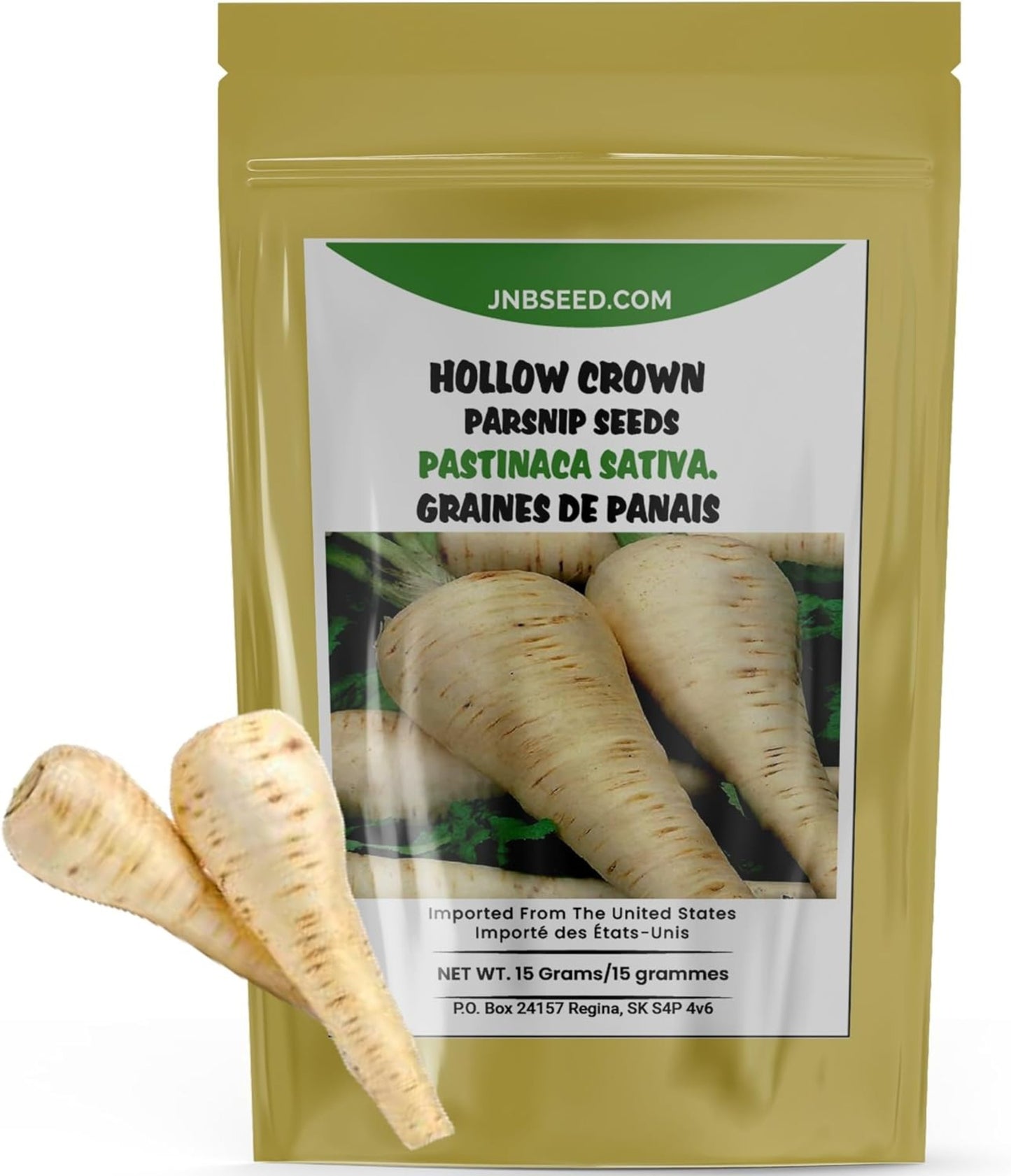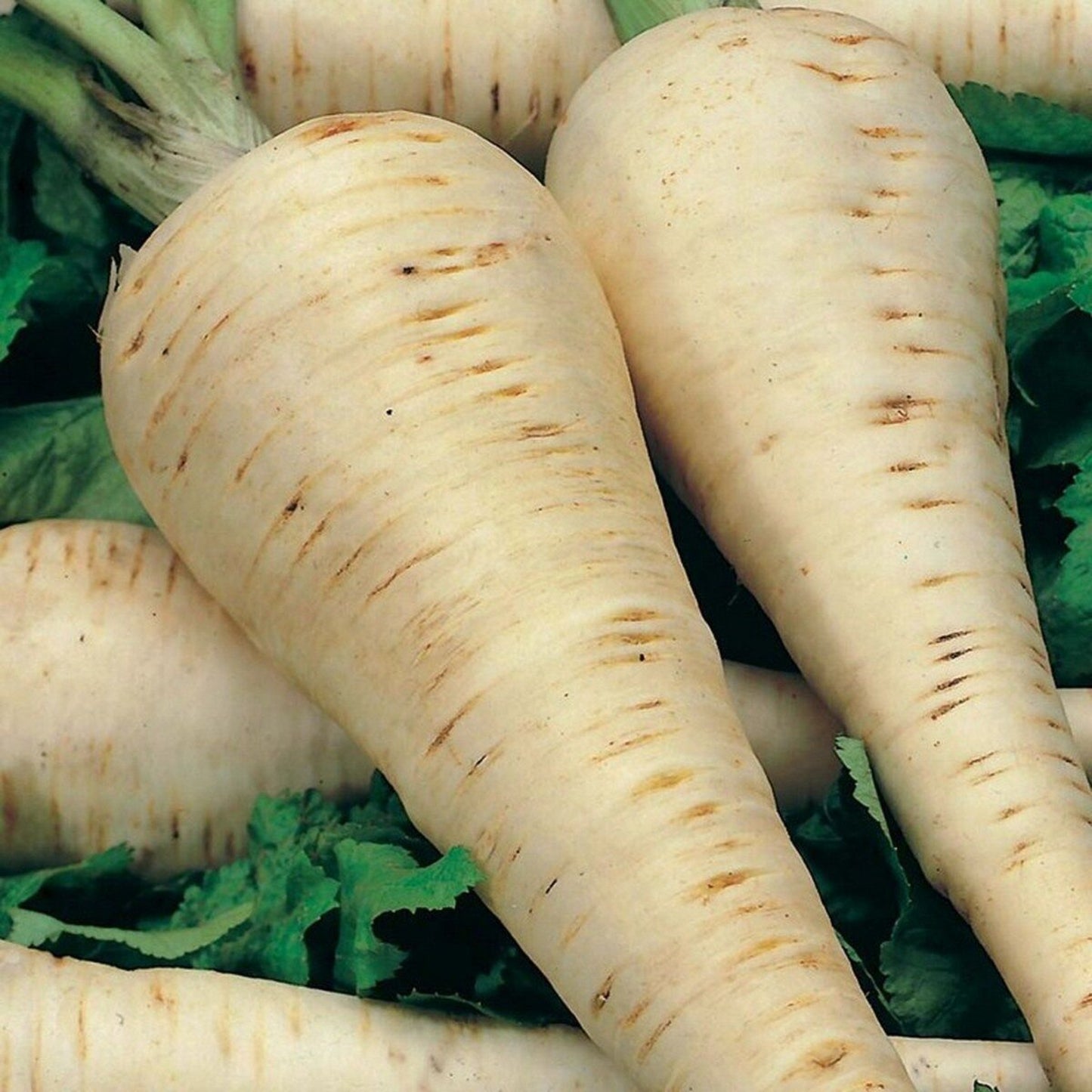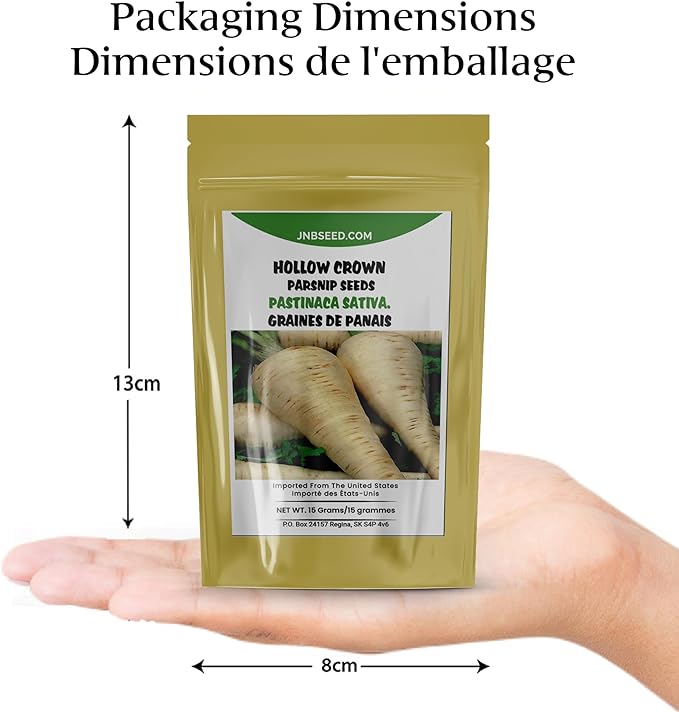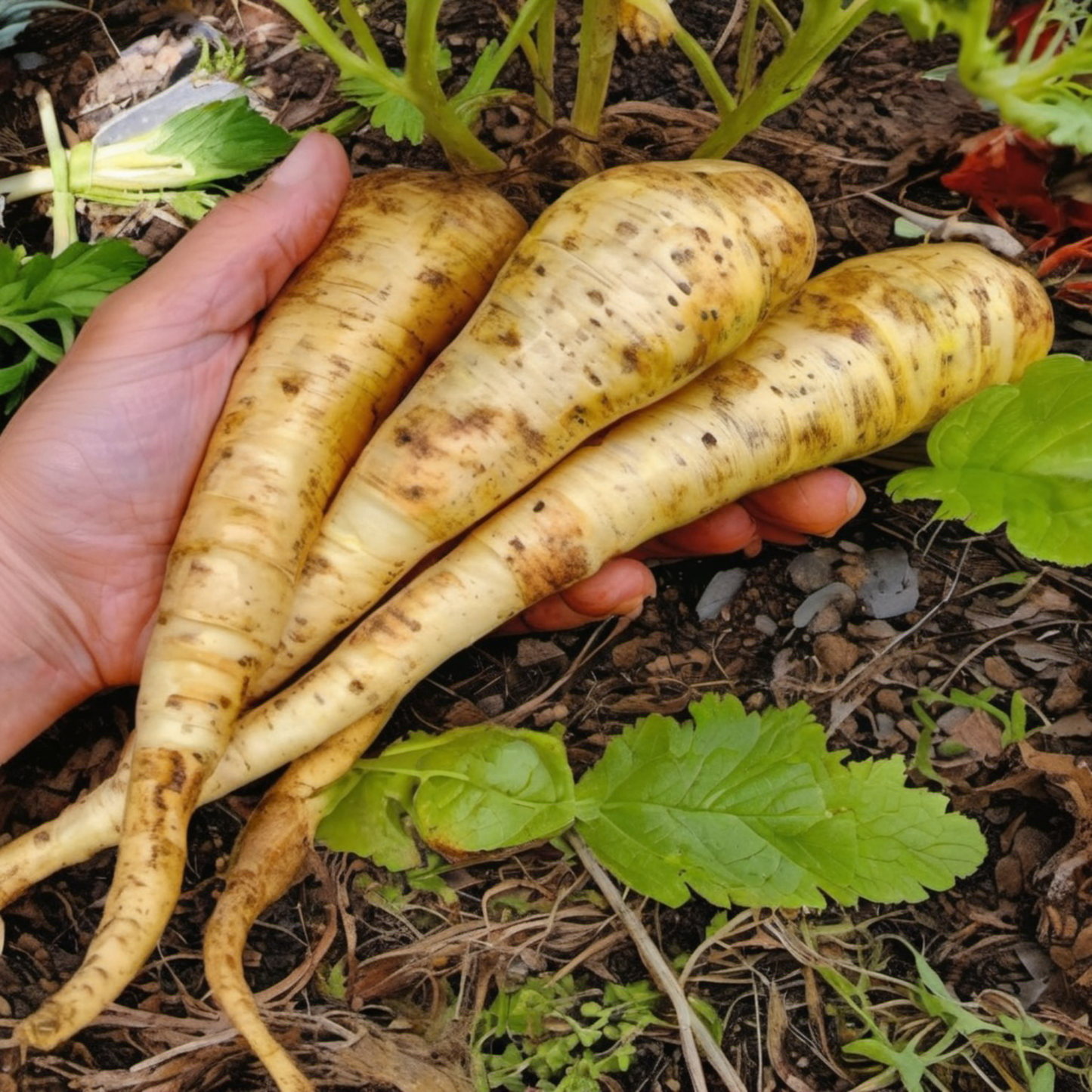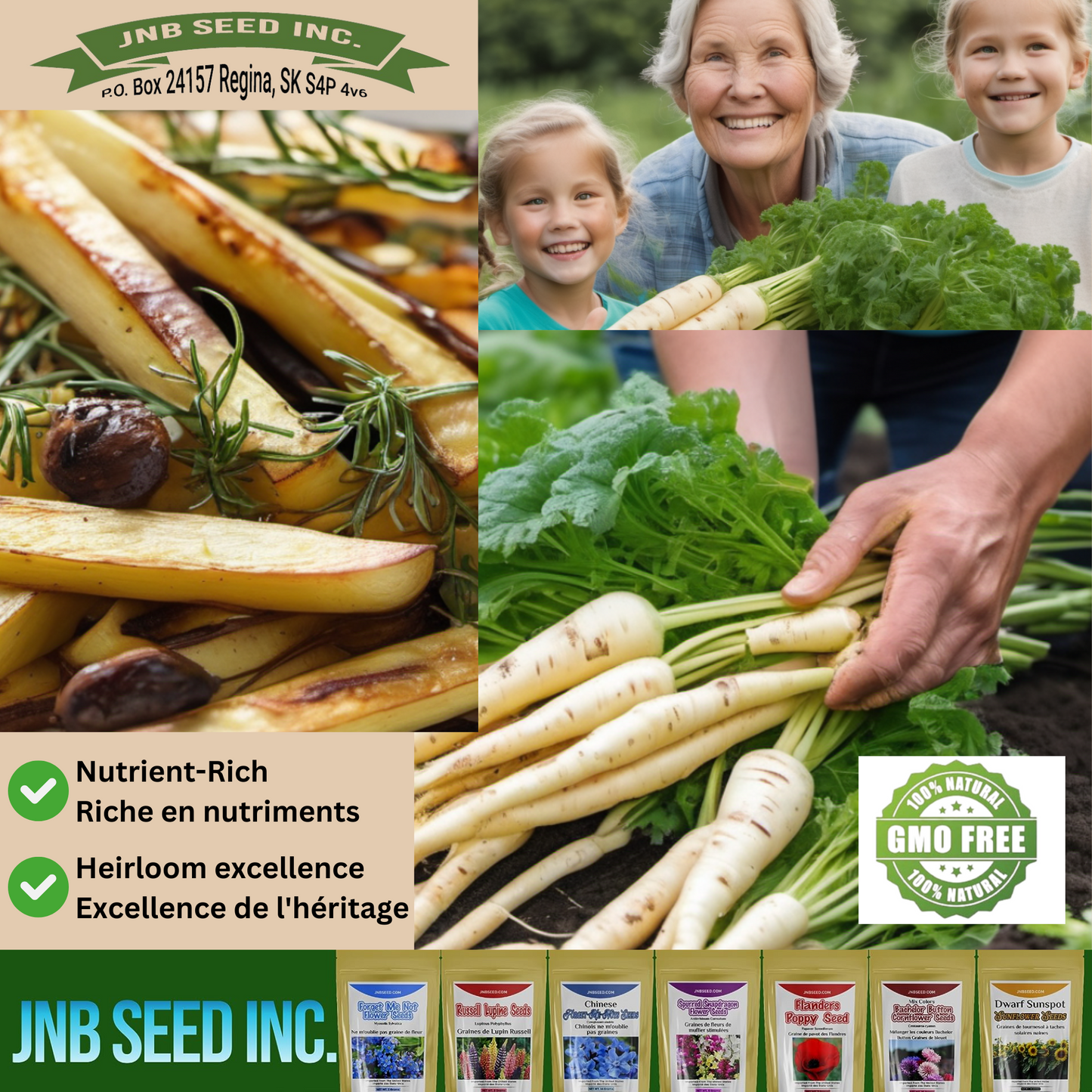JNB Seed
Hollow Crown Parsnip Seeds
Hollow Crown Parsnip Seeds
Couldn't load pickup availability
The Hollow Crown, a beloved variety, is a top-notch parsnip characterized by its lengthy, sleek, white roots, reaching up to 38 centimeters in length and 8 centimeters in diameter, devoid of any side roots. Its sweet white flesh boasts excellent flavor and maintains its quality well into the winter months. Optimal growth is achieved in richly prepared soil, with maturity typically reached in approximately 120 days.
Akin to parsley root and carrots, the parsnip is believed to have originated in Europe, where it thrived in the wild for centuries. Esteemed by the upper class for its innate sweetness, this vegetable frequently adorned desserts and once served as a source of sugar. Although Americans encountered the parsnip in the 16th century, it has predominantly remained a favorite in Europe. The introduction of Hollow Crown parsnips to gardening enthusiasts dates back to 1879, with their debut appearance in D. M. Ferry's seed catalog.
Renowned for its exhibition potential, the Hollow Crown Parsnip stands as one of the oldest varieties, producing elongated roots with smooth white skin and finely textured flesh. However, achieving optimal results necessitates cultivating them in deep, fertile soil. The parsnip holds particular significance in British cuisine due to its resilience during the winter months.
Share
How To Grow
How To Grow
Sowing: Two or three weeks before the last frost of spring, soak Hollow Crown parsnip seeds overnight and then directly sow them 1.27 centimeters deep and 10.16 centimeters apart in rows 46 centimeters apart. The soil should be deeply worked with good drainage. Germination for parsnips can be very slow and irregular, so don't expect sprouting for at least three weeks. Keep the surface of the soil moist and soft, as the seedlings cannot break through a crust.
Growing: Apply a layer of mulch to conserve moisture and control weeds. Parsnips can tolerate some dryness but should be watered during dry weather.
Harvesting
Harvesting
To enhance their flavor, it's best to start harvesting parsnips after they've endured a hard frost. Shield the plants with mulch throughout the winter season, and pick them as required during winter and extending into spring. It's important to note that if the tops begin growing vigorously in spring, it can compromise the flavor, so it's advisable to harvest them before that happens.
Seed Saving
Seed Saving
Parsnips require overwintering before they can produce seeds. Due to their excellent cold tolerance, applying a layer of mulch should suffice to protect them in most climates, except for the coldest ones. In such climates, it's advisable to dig them up and store them at temperatures between 32 and 40 degrees Fahrenheit with 90 percent humidity until they can be replanted in spring.
It's crucial to handle the stems and leaves with care, as they can cause severe rashes and skin irritation. Vigilance is needed when monitoring the seed heads, as they should be individually picked once they turn brown, as they tend to shatter soon afterward. Since parsnip seeds are extremely small and lightweight, they can easily be dispersed. After picking, spread the heads out in a protected area to dry for about a week or until they are completely dry, then proceed to thresh out the seeds.
For optimal germination, it's recommended to store Hollow Crown parsnip seeds in a cool, dry location for no longer than a year.
Extra Facts
Extra Facts
Planting Methods: Indoor, Outdoor
Blooming Season: Late Spring to Early Summer
Planting Season: Early Spring
Latin Name/USDA Zones: Pastinaca sativa/ 3, 4, 5, 6, 7, 8, 9, 10, 11, 12
Sunlight Required/ Height: Full Sun/ 60-90 cm
Can I Grow Parsnip Sprouts?: Yes, you can grow parsnip sprouts. Start by soaking parsnip seeds overnight, then plant them in a tray with well-draining soil. Keep them moist, and once sprouted, harvest tender shoots for salads or garnishes. Ensure adequate light and proper care for healthy parsnip sprouts.
Seed Type: Heirloom, Non-GMO
Soil Type: Loam Soil
